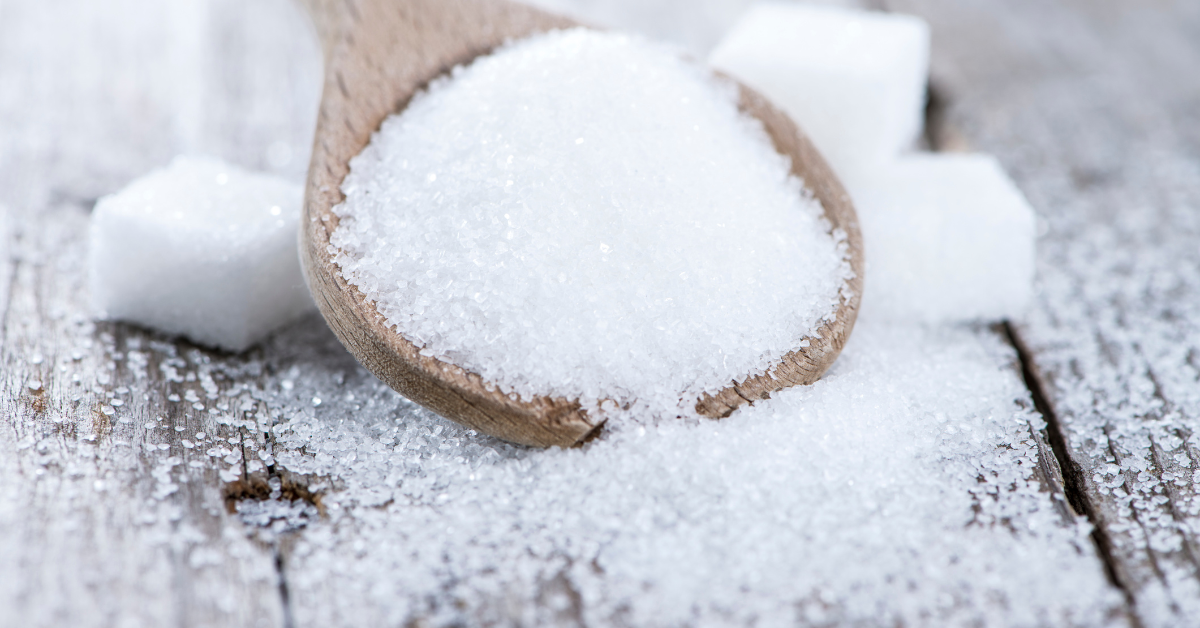When you eat a lot of sugar, your body has to produce more insulin to manage the blood sugar spike. Over time, this can lead to insulin resistance, a condition where your body doesn’t respond to insulin as well as it should. Insulin resistance is linked to lower testosterone levels. Plus, carrying extra weight from a high-sugar diet can also lower testosterone.
Understanding how sugar impacts testosterone levels is crucial for your health. Cutting down on sugar is not just about avoiding weight gain; it’s about maintaining a healthy hormonal balance. By being mindful of your sugar intake, you’re taking a significant step towards better health and well-being.
Sugar and Testosterone, Explained
Consuming high amounts of sugar, particularly from sugar-sweetened beverages (SSBs), has been linked to lower testosterone levels. A study involving adult males in the United States found a significant association between the consumption of SSBs and lower serum testosterone levels. Men who consumed the most sugary beverages each day were more likely to have low testosterone.
Interestingly, consuming a large amount of sugar, such as a 75g sugar intake, can lead to a substantial drop of around 25 percent in testosterone levels for up to two hours. This reduction is a general physiological response, observed across various levels of glucose tolerance.
These findings highlight that high sugar intake, especially from beverages, can negatively impact testosterone production. However, individual responses can vary, and more research is necessary to fully understand the long-term effects of sugar on testosterone levels.
The Negative Effects of Sugar on The Body
Excessive sugar consumption can have a wide range of negative effects on your body, impacting everything from your immune system to your heart health. It’s essential to be aware of these impacts to make informed decisions about your diet.
Sugar Weakens Your Immune System
Consuming too much sugar can weaken your immune system, making you more susceptible to infections. Sugar can interfere with the way your white blood cells attack bacteria, compromising your body’s ability to fight off illnesses.
Sugar Increases Inflammation
High sugar intake is linked to increased inflammation in the body. This inflammation can contribute to a host of chronic diseases, including arthritis, heart disease, and even certain types of cancer.
Sugar Prematurely Ages Your Skin
Sugar can have a detrimental effect on your skin. It contributes to the breakdown of collagen and elastin, leading to premature aging and wrinkles. This process, known as glycation, can make your skin lose its elasticity.
Sugar Damages Your Liver
Just like alcohol, too much sugar can damage your liver. This is due to the way your body processes fructose, a type of sugar, which can lead to non-alcoholic fatty liver disease.
Sugar Leads to Heart Disease and Diabetes
Excessive sugar consumption is a significant risk factor for heart disease and diabetes. It can lead to weight gain, increased blood pressure, and affect your blood sugar levels, all of which strain your heart and can lead to diabetes.
Sugar Can Cause Depression
There is growing evidence that high sugar consumption can hurt mental health, potentially leading to an increased risk of depression. Sugar can cause fluctuations in mood and energy levels.
Sugar Can Cause Cavities
One of the most well-known effects of sugar is its ability to cause tooth decay and cavities. Sugar fuels bacteria in your mouth, leading to the breakdown of tooth enamel.
What Foods and Drinks Are High In Sugar?
Sugar-sweetened beverages like sodas, energy drinks, and some fruit juices are major sources of added sugar. Processed snacks, candies, baked goods, and certain breakfast cereals also typically contain high amounts of sugar.
It’s important to be aware of hidden sugars in products like flavored yogurts, salad dressings, and sauces. Reading labels carefully can help you identify and avoid these hidden sugars.
Opting for whole foods, such as fresh fruits, vegetables, and whole grains, can significantly reduce your sugar intake. Natural sweeteners like honey or maple syrup, used in moderation, can also be better alternatives to refined sugars.
Will Cutting Sugar Intake Cure My Low Testosterone?
Reducing sugar intake can be a positive step toward improving testosterone levels, but it’s not a standalone cure for low testosterone. Cutting back on sugar, especially from high-sugar beverages and processed foods, can help improve overall health and potentially testosterone levels. However, it’s just one aspect of a multifaceted approach needed to address low testosterone.
In addition to reducing sugar, focusing on a balanced diet, regular exercise, stress management, and sufficient sleep are essential. These lifestyle changes collectively contribute to better hormonal balance and overall health.
If you’re dealing with low testosterone, it’s important to consult with healthcare professionals. They can provide a comprehensive treatment plan that may include dietary changes, lifestyle modifications, and possibly medical interventions.
Remember, managing your testosterone levels is about a balanced approach to diet and lifestyle. Reducing sugar intake is a positive step, but it’s most effective when combined with other healthy practices.
Take Control of Your Testosterone and Health
The link between sugar consumption and reduced testosterone levels is an important topic for anyone concerned about hormonal health. Excessive sugar intake has been shown to negatively affect testosterone production, highlighting the need for dietary awareness and moderation. Understanding how sugar impacts not only testosterone but also overall health is crucial for maintaining hormonal balance and well-being.
For those seeking a more personalized and medically informed approach to managing testosterone levels, Best TRT provides a comprehensive solution. As an authoritative online platform for Testosterone Replacement Therapy (TRT), Best TRT offers access to healthcare professionals who specialize in hormonal health. By scheduling a free consultation, you can gain expert insights into how your dietary habits, including sugar consumption, influence testosterone levels. This opportunity allows for the development of a tailored plan that addresses your unique health needs and goals.
Schedule your free TRT consultation here to receive professional guidance on maintaining optimal hormonal health.


